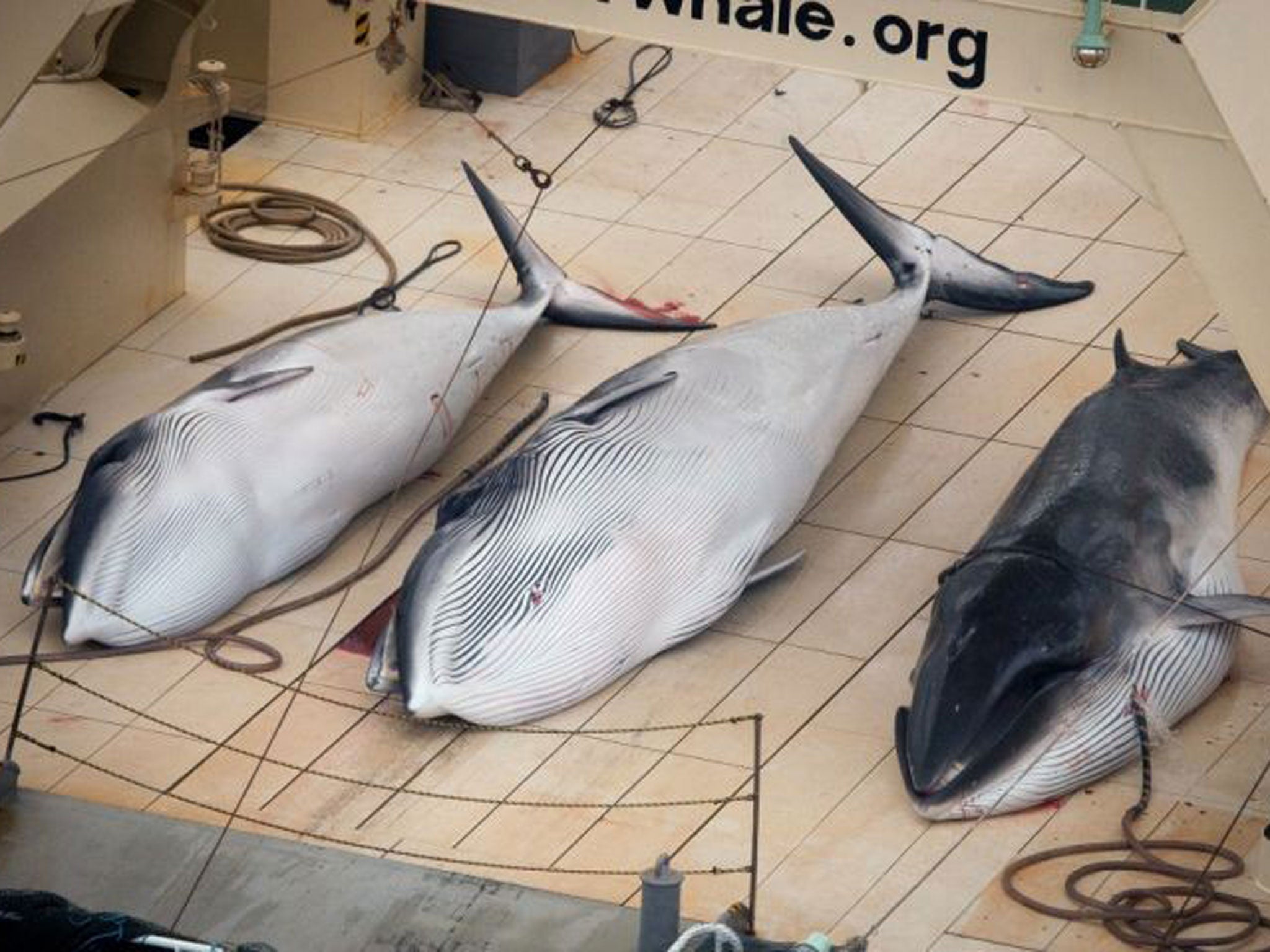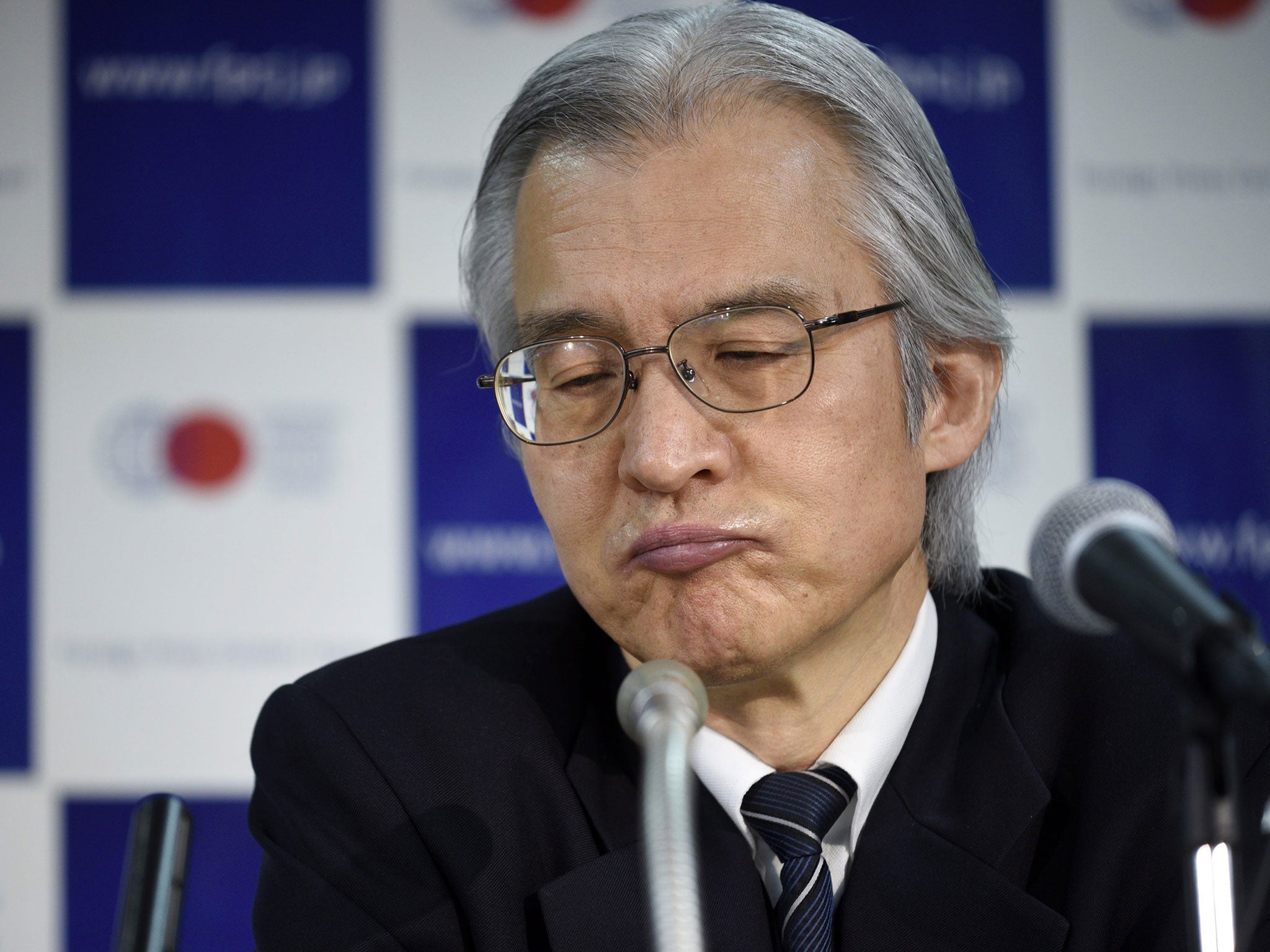Japan's justification for whaling research involving 'lethal sampling' rejected by international scientific committee panel
But the country plans to kill 3,996 minke whales anyway

Your support helps us to tell the story
From reproductive rights to climate change to Big Tech, The Independent is on the ground when the story is developing. Whether it's investigating the financials of Elon Musk's pro-Trump PAC or producing our latest documentary, 'The A Word', which shines a light on the American women fighting for reproductive rights, we know how important it is to parse out the facts from the messaging.
At such a critical moment in US history, we need reporters on the ground. Your donation allows us to keep sending journalists to speak to both sides of the story.
The Independent is trusted by Americans across the entire political spectrum. And unlike many other quality news outlets, we choose not to lock Americans out of our reporting and analysis with paywalls. We believe quality journalism should be available to everyone, paid for by those who can afford it.
Your support makes all the difference.Japan’s controversial plans to research whales by killing them has been rejected by an international scientific body – but that doesn’t mean they won’t go ahead.
A meeting of the scientific committee for the International Whaling Commission (IWC) found that Japan still has no convincing explanation as to why it needs to kill the mammals in order to conduct its research.
Experts said that “the current proposal does not demonstrate the need for lethal sampling” in order for Japan to achieve its stated scientific objectives.
Yet the country has already rejected the decision, saying that it will go ahead with plans to kill almost 4,000 minke whales in the next 12 years as submitted to the IWC in November last year.
Joji Morishita, Japan’s envoy to the IWC, said his nation was open to unspecified “revisions” to their plan after Monday’s decision from a panel of experts – only part of the full scientific committee.

He added that Japan would provide additional data to try and convince the full committee to come to a different conclusion when it meets in May, but warned that it will not be easy.
“The scientific committee is more political than the panel,” Morishita said. “I won't be surprised if we face some countries that oppose our plans not because of science.”
Morishita added that “we hope to work toward a resumption [of research whaling] at the end of the year”.
Commercial whaling was banned by the whaling commission in 1986, but Japan has continued to kill whales under an exemption for scientific research.
The International Court of Justice ruled last year that the hunts were not truly scientific, prompting Japan to issue a revised plan which involved catching 333 minke whales (down from 1,035) each year between 2015 and 2027.
Japan's actual catch has fallen in recent years in part because of declining domestic demand for whale meat, while the expenditure of large amounts of tax money on sustaining operations has proved controversial. The catch has also been affected by protests from the anti-whaling group Sea Shepherd.
Join our commenting forum
Join thought-provoking conversations, follow other Independent readers and see their replies
Comments